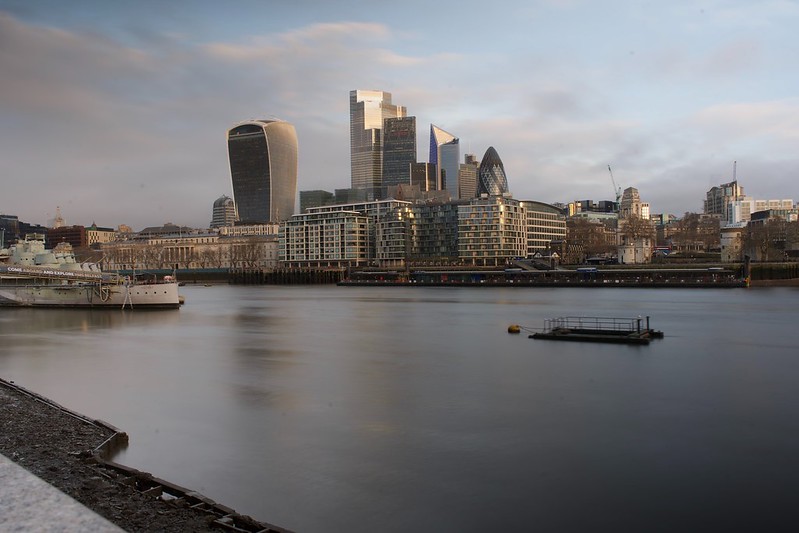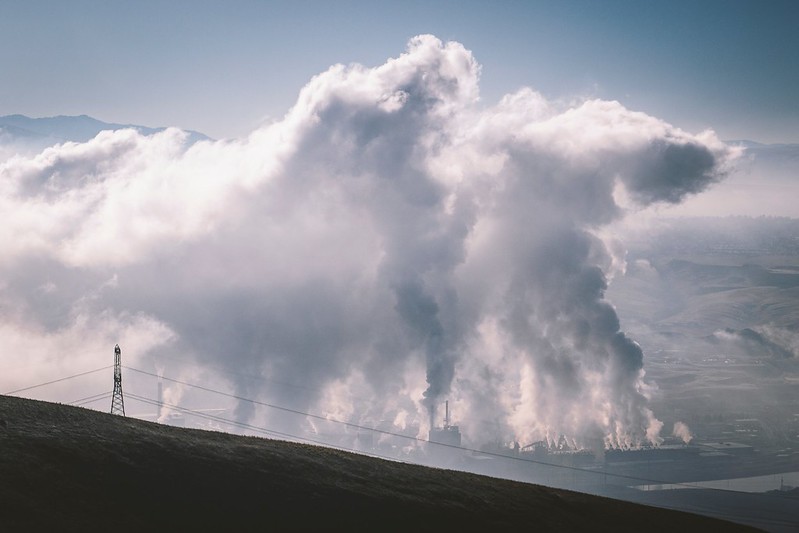
Culture
-
 London Zoo’s giraffes take centre stage in New London Underground poster celebrating 200 years of ZSL
London Zoo’s iconic giraffes have stepped into the spotlight with the launch of a striking new London Underground poster, marking the start of ZSL’s 200th anniversaryRead More...
London Zoo’s giraffes take centre stage in New London Underground poster celebrating 200 years of ZSL
London Zoo’s iconic giraffes have stepped into the spotlight with the launch of a striking new London Underground poster, marking the start of ZSL’s 200th anniversaryRead More... -
 Rare 18th-century ‘Shock Dog’ sculpture by Anne Damer faces possible export from the UK
A rare 18th-century terracotta sculpture of a dog by pioneering British artist Anne Seymour Damer has been placed under a temporary export bar, amid concerns it could leave the UK unless aRead More...
Rare 18th-century ‘Shock Dog’ sculpture by Anne Damer faces possible export from the UK
A rare 18th-century terracotta sculpture of a dog by pioneering British artist Anne Seymour Damer has been placed under a temporary export bar, amid concerns it could leave the UK unless aRead More... -
 Astronomers Take Over: hands-on space gallery and live Planetarium shows launch at the National Maritime Museum
A new space adventure is landing in Greenwich. ‘Astronomers Take Over’, a playful, hands-on gallery led by real astronomers, opens at the National Maritime MuseumRead More...
Astronomers Take Over: hands-on space gallery and live Planetarium shows launch at the National Maritime Museum
A new space adventure is landing in Greenwich. ‘Astronomers Take Over’, a playful, hands-on gallery led by real astronomers, opens at the National Maritime MuseumRead More... -
 UK Prime Minister champions British theatre’s growing success in China during Shanghai visit
The Prime Minister has highlighted the growing global influence of British theatre during a visit to Shanghai, underlining how the UK’s creative industries are driving economic growth andRead More...
UK Prime Minister champions British theatre’s growing success in China during Shanghai visit
The Prime Minister has highlighted the growing global influence of British theatre during a visit to Shanghai, underlining how the UK’s creative industries are driving economic growth andRead More... -
 King Charles and Queen Camilla host green carpet premiere at Windsor Castle for new Amazon prime film
King Charles, with Queen Camilla by his side, opened the doors of the longest-occupied castle in Europe for a sparkling evening at Windsor Castle, marking the premiere of ‘Finding Harmony –Read More...
King Charles and Queen Camilla host green carpet premiere at Windsor Castle for new Amazon prime film
King Charles, with Queen Camilla by his side, opened the doors of the longest-occupied castle in Europe for a sparkling evening at Windsor Castle, marking the premiere of ‘Finding Harmony –Read More... -
 Karen Newman appointed to sculpt Queen Elizabeth II for National Memorial in St James’s Park
Renowned British sculptor Karen Newman MRSS has been appointed to create a new sculpture of Queen Elizabeth II as part of the UK’s national memorial to the late Monarch, the QueenRead More...
Karen Newman appointed to sculpt Queen Elizabeth II for National Memorial in St James’s Park
Renowned British sculptor Karen Newman MRSS has been appointed to create a new sculpture of Queen Elizabeth II as part of the UK’s national memorial to the late Monarch, the QueenRead More... -
 UK government unveils £1.5bn culture investment to save 1,000 local venues and restore national pride
The government has announced a landmark £1.5 billion investment in arts, culture and heritage, pledging to safeguard more than 1,000 local venues across England and reverse years ofRead More...
UK government unveils £1.5bn culture investment to save 1,000 local venues and restore national pride
The government has announced a landmark £1.5 billion investment in arts, culture and heritage, pledging to safeguard more than 1,000 local venues across England and reverse years ofRead More... -
 Museum of Oxford reveals 2026 programme focused on community stories, talks and events
The Museum of Oxford has unveiled its 2026 programme, setting out a year of talks, tours and hands-on events that place local people and shared histories firmly centre stage. The newRead More...
Museum of Oxford reveals 2026 programme focused on community stories, talks and events
The Museum of Oxford has unveiled its 2026 programme, setting out a year of talks, tours and hands-on events that place local people and shared histories firmly centre stage. The newRead More... -
 £9m Claude Lorrain masterpiece faces possible export as UK scrambles to keep Baroque treasure
A Baroque landscape masterpiece valued at £9 million has been placed under a temporary export ban, giving UK institutions a final opportunity to keep the work in the country.Read More...
£9m Claude Lorrain masterpiece faces possible export as UK scrambles to keep Baroque treasure
A Baroque landscape masterpiece valued at £9 million has been placed under a temporary export ban, giving UK institutions a final opportunity to keep the work in the country.Read More... -
 Welsh towns invited to compete for first-ever UK Town of Culture title
Could a Welsh town become the very first UK Town of Culture? Communities across Wales are being invited to step into the national spotlight as the UK launches its inaugural Town of CultureRead More...
Welsh towns invited to compete for first-ever UK Town of Culture title
Could a Welsh town become the very first UK Town of Culture? Communities across Wales are being invited to step into the national spotlight as the UK launches its inaugural Town of CultureRead More... -
 In Bloom: How plants shaped Britain and the modern world
Plants surround us every day – in our gardens, our homes and even in our cups of tea – yet few of us stop to consider the extraordinary journeys they have taken to get here.Read More...
In Bloom: How plants shaped Britain and the modern world
Plants surround us every day – in our gardens, our homes and even in our cups of tea – yet few of us stop to consider the extraordinary journeys they have taken to get here.Read More... -
 UK launches first town of culture competition to revive local pride and boost economic growth
The government has officially launched the UK’s first-ever Town of Culture competition, marking a major new push to restore pride in communities and drive cultural-led economic growthRead More...
UK launches first town of culture competition to revive local pride and boost economic growth
The government has officially launched the UK’s first-ever Town of Culture competition, marking a major new push to restore pride in communities and drive cultural-led economic growthRead More... -
 Government announces academy trust inspections to strengthen school accountability
New academy trust inspections to boost transparency for parents and strengthen outcomes for childrenRead More...
Government announces academy trust inspections to strengthen school accountability
New academy trust inspections to boost transparency for parents and strengthen outcomes for childrenRead More...

British Queen celebrates
Most Read
- Teen held after US woman killed in London stabbings
- Heave-ho Harry! Prince prepares to join the walking wounded in ice trek to North Pole
- Football: Farhad Moshiri adamant Everton deal above board
- "Master of English Style". Interview with Designer Lydia Dart
- Letter to the Financial Times from Lord Mayor Alderman Michael Bear
UK news

The joint letter between Chancellor Rishi Sunak and Business Secretary Kwasi Kwarteng sets out the key pillars of investment that the government will focus on as we build back better from the

- More than £2 billion announced for world leading future combat air system Tempest to keep UK and allies safe

The Mayor of London has today marked the anniversary of the nation’s first national lockdown by planting the final trees at the London Blossom Garden.

The Mayor of London, Sadiq Khan, has today announced the establishment of the capital’s first pan-London homeless accommodation hub specifically for the use of

The Mayor of London, Sadiq Khan has announced that £6 million will be invested in directly supporting the re-opening of London’s economy once COVID restrictions are lifted. This comes as a

The Mayor of London, Sadiq Khan, has welcomed Haringey council tenants to their new homes as he hailed the landmark number of new council home starts across the city over the last five

The Mayor of London, Sadiq Khan, today announced a landmark deal to secure more than 1,550 genuinely affordable homes on the former Dagenham Stamping Plant

The Mayor of London, Sadiq Khan, has today announced investment of £3 million in 42 small grassroots organisations to deliver support for women and girls who have been the victims of
More than £544 million worth of investment to be spent on creating jobs and revitalising local areas

The Mayor of London, Sadiq Khan, will today unveil a bumper package of measures worth more than £544 million to kickstart London’s recovery from the coronavirus

The Mayor of London, Sadiq Khan, and Michael R. Bloomberg are today announcing a joint investment in air quality monitoring worth almost £1.5m, to help ensure London’s recovery from the





















